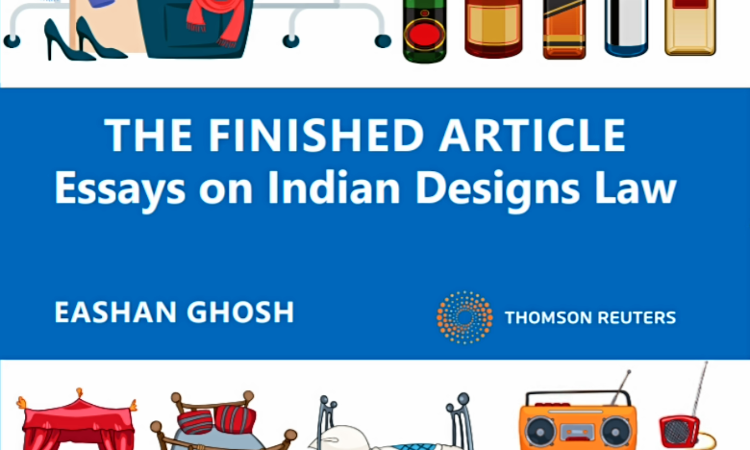Book Announcement : "The Finished Article: Essays on Indian Designs Law"
LIVELAW NEWS NETWORK
23 Jun 2022 7:27 PM IST

Next Story
23 Jun 2022 7:27 PM IST
The Finished Article: Essays on Indian Designs Law (Thomson Reuters, 2022, ISBN-13: 978-9393702173) is a recent book published by Eashan Ghosh, intellectual property lawyer. The book is available for purchase online at this link. This is his second book on Indian intellectual property law, following Imperfect Recollections: The Indian Supreme Court on Trade Mark Law (2020). The Finished...
